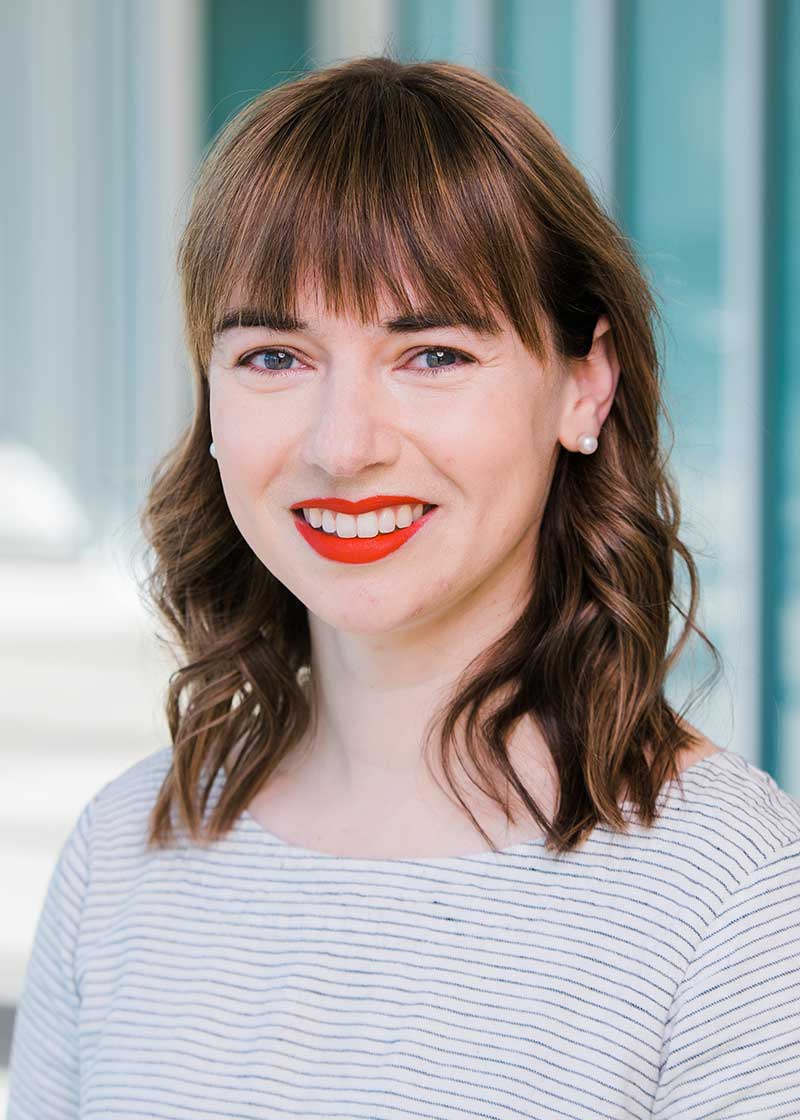December 2023
Anne Brisendine, DrPH, CHES Ae2158@uab.eduAssistant Professor, Health Policy and OrganizationScience Director, Applied Evaluation and Assessment Collaborative
What brought you to the UAB School of Public Health?
When I was thinking about coming back to graduate school, I was working at a management consulting firm here in Birmingham where I had the privilege of working with Dr. Shauntice Allen on several projects. Her mentorship and encouragement not only pulled me to public health but also pulled me to the UAB School of Public Health.
What is the broad focus of your research?
I came into this work wanting to explore women's health and the impacts of trauma on outcomes for mothers and families. I hadn't been working on that for a long time, but I feel like I'm finally coming back into that space. Many of my projects focus on mental health across the lifespan, and I'm slowly weaving my work in perinatal health into the mix as well.
Where did you receive your training and degrees?
I earned my undergraduate degree at Barnard College at Columbia University where I majored in American Studies. My master’s and doctorate degrees are both from the UAB School of Public Health, and I completed a postdoc in the Department of Psychology here at UAB as well.
What is the most exciting project you are currently working on?
The most exciting project I am working on is the evaluation of the Pediatric Access to Telemental Health Services (PATHS) program. It's a HRSA-funded pediatric mental health care access program that focuses on workforce development to expand the reach of behavioral and mental health care specialists across the state of Alabama with a particular focus on rural areas. Having been involved with the program's evaluation for five years, it has been a privilege to tell the story of this work as it was built from the ground up. We've been able to share the work through a variety of ways – from peer-reviewed manuscripts and reports to state agencies and legislators to infographics and interviews. The project just received its second round of funding and will be expanding state-wide, and we're already planning some of the other questions we want to be asking in the next phase of the evaluation.
What is your favorite self-authored manuscript?
I am really proud of the manuscript, "Testing a Tailored Social-Ecological Model for Autism Spectrum Disorders" that was published in the Maternal and Child Health Journal. It was the first manuscript to come out of my dissertation, and it was the culmination of so much learning, work and revision. I would probably do the work and write the manuscript completely differently today, but it reminds me of where I started.
What professional accomplishment are you most proud of so far in your career?
Nothing makes me happier than mentoring someone more junior than I am through the research process and seeing their first first-author manuscript be published.
What is the coolest training or program you've been a part of, or your favorite conference you've attended?
At the Association of Maternal and Child Health Programs (AMCHP) conference in 2019, the poster I presented was next to one that had a therapy dog as one of the co-authors. The dog attended the poster session, and it was the greatest time I've ever had at a conference. She was a golden retriever, and for a while I had her business card in my office!
What kind of research would you like to be doing that you haven’t yet had the opportunity to do?
As a new mom, I have become fascinated by how little is known about breastfeeding – what medications are safe to take while breastfeeding, how does nutrition and quality vary based on maternal diet or genetics, how does it really compare with formula... I don't necessarily have the training to be able to get into the biology of these questions, but somebody should!
If you had the funding to answer any one research question, what would that question be?
I would love to bring together my work on maternal health with my work on mental health to look at perinatal mood disorders. Specifically, I would want to use a mixed methods approach to design an intervention based on the question of what pregnant and parenting folks need in order to thrive, specifically so that we can prevent maternal mortality associated with perinatal mood disorders.
If you weren’t in academia, what would your career be?
I sing with the chorus of Opera Birmingham, but as much as I would like to think I could make it as an opera singer, I would probably be a librarian or working in a book store.
